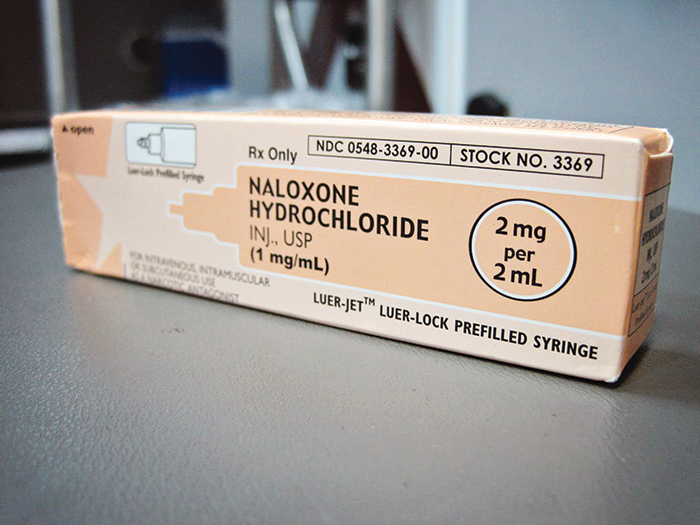File Photo
The bill requires certain public facilities to maintain a stock of opioid antagonists, such as naloxone, in first aid kits and requires the education and training of staff persons employed in such places in the administration of opioid antagonists.
By Forum Staff
The Senate Democratic Majority recently advanced legislation to combat the opioid crisis by expanding access to life-saving medication and improving treatment programs to support the recovery of New Yorkers struggling with substance use disorder.
The legislation advanced last Wednesday expands access to buprenorphine treatment and ensures abuse-deterrent medication is accessible; requires practitioners to take into consideration non-opioid treatment alternatives when treating neuromusculoskeletal conditions, prohibits insurance companies from imposing co-payments for treatment, provides due process protections to drug treatment providers from audits by the Medicaid Inspector General and establishes an addiction and mental health integrated services pilot program. Additionally, last week’s legislation increases the availability of naloxone opioid antagonists like NARCAN® in public facilities and nightlife establishments.
The legislation includes:
Prohibits Co-Payments for Treatment at an Opioid Treatment Program: This bill, S.5690, sponsored by Senator Pete Harckham, prohibits insurance companies from imposing co-payments for treatment at an opioid treatment program.
- Ensure Availability of Buprenorphine in Opioid Treatment Programs: This bill, S.6746A, sponsored by Senator Pete Harckham, requires facilities that provide treatment for substance use disorders to have at least one practitioner qualified to administer or prescribe buprenorphine to individuals in their care with substance use disorders related to opioids.
- Provide Due Process Protections to Health Care Providers and Recipients: This bill, S.4486B, sponsored by Senator Pete Harckham, amends provisions relating to audit and review of medical assistance program funds by the Medicaid Inspector General; prohibits additional review without error or new information; requires application of rules in place at the time funds were paid to providers; requires notice to recipients of medical assistance funds of certain investigations.
- Abuse-Deterrent Technology Availability: This bill, S.4532, sponsored by Senator Samra Brouk, ensures that abuse-deterrent drugs approved by the FDA are accessible to patients and that insurance coverage does not disincentivize access for patients to drugs approved by the FDA as abuse-deterrent.
- Nightlife Opioid Antagonist Program: This bill, S.8633A, sponsored by Senator Leroy Comrie, establishes the nightlife opioid antagonist program to allow certain establishments to apply and receive at least ten doses of opioid antagonist, free of charge, to have on site to be administered to patrons, staff or individuals in the case of an emergency.
- Topher’s Law – Intensive Addiction Recovery and Mental Health Pilot Program: This bill, S.8244, sponsored by Senator Tim Kennedy, establishes an intensive addiction recovery and mental health integrated services pilot program to support two three-year demonstration programs that provide intensive addiction and mental health integrated services to individuals with significant addiction and mental health issues who have had multiple and frequent treatment episodes.
- Erin’s Law – Public Facilities to Carry Opioid Antagonists: This bill, S.8708A, sponsored by Senator John Mannion, requires certain public facilities to maintain a stock of opioid antagonists in first aid kits and requires the education and training of staff persons employed in such places in the administration of opioid antagonists.
- Consideration and Prescription of Non-Opioid Treatment Alternatives: This bill, S.4640, sponsored by Senator Gustavo Rivera, requires providers to consider, discuss and refer or prescribe (where appropriate and based upon clinical judgment) non-opioid treatment alternatives for treatment of neuromusculoskeletal conditions.

